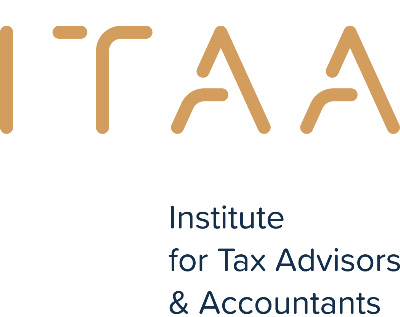PHILIPPE ARRAOU PARTICIPATES TO THE FRENCH PRESIDENCY’S CONFERENCE ON E-INVOICING
On Thursday 10 February, ETAF President, Philippe Arraou, participated to a ministerial conference on electronical invoicing, organized by the French Presidency of the EU Council. Participants discussed the upcoming French reform of e-invoicing, which will start applying to large companies on 1 July 2024 and expand progressively to all companies in 2026 as well as the existing systems in Italy, Spain and Portugal. During the conference, Maria Elena Scoppio, Director for ‘Indirect Taxation and Tax Administration’ in the European Commission recalled that the Commission is working on a package on VAT in the digital age, which could be adopted by the end of October 2022. The Commission is looking at the best options to propose to Member States while recognizing the need for flexibility due to national particularities, she said. For his part, Philippe Arraou regretted the lack of political will from Member States to advance together at EU level on e-invoicing.
THE COMMISSION PROPOSES TO EXTEND UNTIL 2025 TWO VAT ANTI-FRAUD MEASURES
The Commission published on Thursday 10 February a proposal for a Directive extending until the end of 2025 the application period for two anti-fraud measures contained in the 2006 VAT Directive: – the possibility for Member States to apply the Reverse Charge Mechanism to combat existing fraud in supplies of goods and services and; – the possibility to use the Quick Reaction Mechanism to combat fraud via the application of the reverse charge mechanism in very specific cases. Both articles have been successively extended until 30 June 2022 in order to coincide with the initially foreseen date on which the definitive VAT system would enter into force. However, as negotiations on this file in the EU Council are blocked, the Commission believes it is appropriate to prolong these measures until the end of 2025. Should the definitive VAT system or the future proposal on VAT in the digital age (currently foreseen for 2022) enters into force before 2025, Articles 199a and 199b would be amended. But if this is not the case, a further extension of both articles could be considered, the Commission adds. Interested parties can submit their feedback on the proposal here until 7 April.
TEN THIRD COUNTRIES TO JOIN THE EU GREY LIST FOR TAX PURPOSES
EU Member States’ ambassadors approved on Wednesday 9 February a revision of the EU black and grey lists of tax havens. According to a draft, ten new countries will enter the grey list of jurisdictions with tax risks but which have committed themselves to take corrective measures: Russia, Belize, Israel, Tunisia, Vietnam, the Bahamas, Bermuda, Montserrat, the British Virgin Islands and the Turks and Caicos Islands. However, the EU blacklist of jurisdictions that are uncooperative on tax matters will remain unchanged with American Samoa, Fiji, Guam, Palau, Panama, Samoa, Trinidad and Tobago, the US Virgin Islands and Vanuatu. As expected, Turkey will once again escape the blacklist and remain on the grey one. The revision of the two lists will be officially adopted on 24 February.
STAKEHOLDERS DISCUSS THE IMPORTANCE OF TAXPAYER EDUCATION
Several stakeholders discussed on Tuesday 8 February how to foster taxpayer education to enhance public trust in tax during an online conference organized by ACCA and IFAC, in collaboration with the OECD. There are number of ways in which citizens can gain knowledge and confidence in the tax system, such as education of taxpayers about the tax system, providing taxpayers with justifications for specific changes in tax law or reducing complexity, Helen Brand, Chief Executive at ACCA, said. For the occasion, Grace Perez-Navarro, Deputy Director of the OECD’s Centre for Tax Policy and Administration presented a recent report from the OECD on taxpayer education. Agnija Rasa, Deputy head of unit Management of programmes and EU training at the DG TAXUD of the European Commission, described the Customs and Tax EU Learning portal and the newly launched TAXEDU portal as good tools to improve taxpayer education. MEP Victor Negrescu (S&D, Romania) said that we need a genuine strategy for tax education and a learning framework at EU level. He suggested to set up a stakeholder’s group to continue exchanging on these issues and take a leader role in promoting tax education.
A DIGITAL EURO PROPOSAL TO BE PRESENTED IN EARLY 2023
The European Commission is reportedly planning to present a proposal for a digital euro in early 2023. EU Commissioner for Finances Mairead McGuinness made the announcement on Wednesday 9 February at a conference organized by Afore Consulting. The proposal should serve as a legal basis for the European Central Bank’s (ECB) ongoing technical work on a digital euro. The ECB is currently carrying out experiments and expects to start working on a prototype at the end of 2023. The European Commission should launch a public consultation on a digital euro in the coming weeks, followed by an impact assessment to examine what safeguards are needed to prevent the initiative from destabilizing the financial system.


